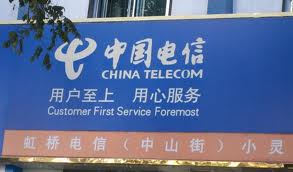 The economic planning agency of the People’s Republic of China says it suspects the country’s two dominant telecommunications companies — China Telecom and China Unicom — have created a cozy duopoly between themselves and are overcharging consumers for broadband Internet access. That’s a fact of life many Americans and Canadians are also familiar with, but in China, regulators are preparing to do something about it.
The economic planning agency of the People’s Republic of China says it suspects the country’s two dominant telecommunications companies — China Telecom and China Unicom — have created a cozy duopoly between themselves and are overcharging consumers for broadband Internet access. That’s a fact of life many Americans and Canadians are also familiar with, but in China, regulators are preparing to do something about it.
The National Development and Reform Commission is launching a comprehensive investigation in response to a torrent of complaints from customers that both companies are charging high prices for Internet access and delivering slow speeds.
“With such a dominant position in the market they practice price discrimination, raising prices for companies that are competing with them while giving discounted prices to non-competitors,” said Li Qing, deputy director of the price supervision and anti-monopoly department of the NDRC.
 Although some large Chinese cities now have access to broadband service at speeds far faster than what American and Canadian consumers can purchase, the Chinese government agency tasked with ensuring compliance of the country’s anti-monopoly laws reports most Chinese consumers buy slow speed, high-priced DSL.
Although some large Chinese cities now have access to broadband service at speeds far faster than what American and Canadian consumers can purchase, the Chinese government agency tasked with ensuring compliance of the country’s anti-monopoly laws reports most Chinese consumers buy slow speed, high-priced DSL.
China still follows a Communist political philosophy, but has entertained capitalist free market reforms within the state-planned and managed economy. Too often, the result has allowed state-owned enterprises to leverage their size and status to create unfettered oligopolies. As government controls and oversight ease, marketplace abuses have become rampant, often at the consumer’s expense. Government subsidies for the super-sized, state-owned companies have also made private sector competition more difficult.
The Xinhua News Agency notes the two dominant broadband companies in China control 90 percent of the marketplace. China Telecom, the state-owned phone company, was directed in 2002 to open its network to private Internet Service Providers who can purchase Telecom’s wholesale broadband service and resell it to consumers. But Telecom simply boosted prices for wholesale access, pricing many would-be players out of the market. Some companies complained they would have to charge double or triple the rates China Telecom charges itself for the same level of service.
Liu Zheng, information director for business solutions at the research company Analysys International, told the Global Times that the probe may reduce costs for small operators and eventually benefit consumers.
“I don’t expect a reshuffle in the market,” Liu said. “Penalties won’t lead to decrease of their market share. It’s more of a warning to the two operators.”
Both companies are listed on the Hong Kong Stock Exchange and shortly after news of the investigation reached shareholders, both suffered heavy losses in share prices.


 Subscribe
Subscribe